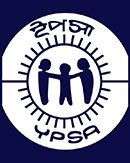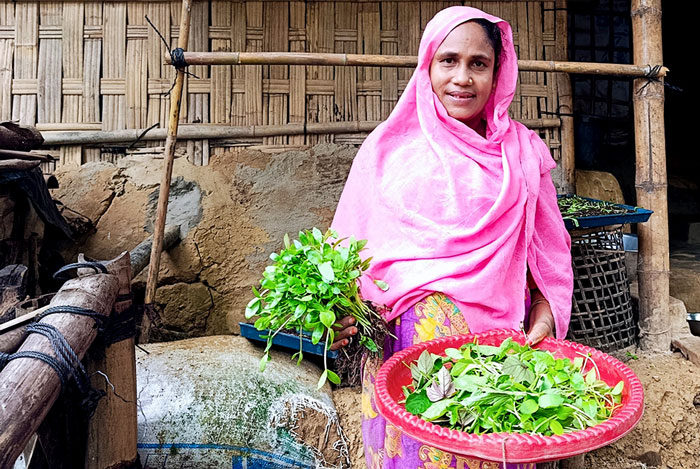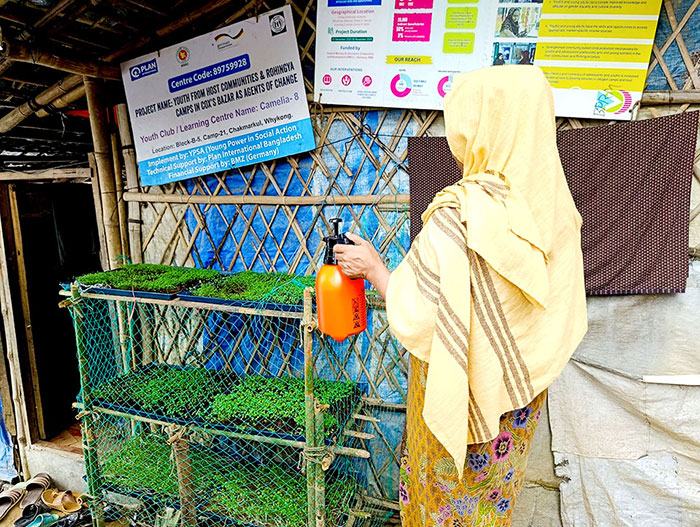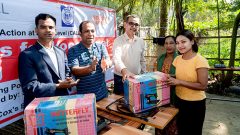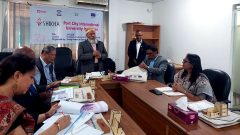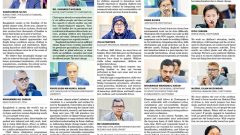Tray-based microgreens cultivation is an innovative and highly effective agricultural technique, particularly in environments with limited space and resources, such as the Rohingya Camp-21 in Chakmarkul, Cox’s Bazar. The YPSA–YHCRCCAC project has brought a new ray of hope to this community. Its ‘Livelihood Intervention’ component was designed with the goal of fostering nutrition, self-reliance, and livelihood opportunities using limited resources. This vision led to the initiation of tray-based microgreens cultivation, which has since become a key initiative.
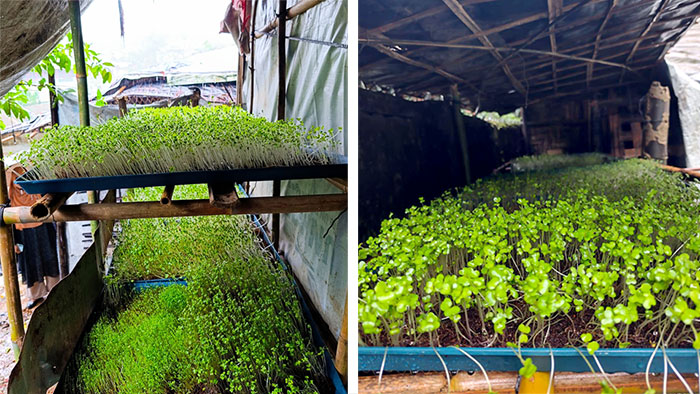
Camp residents are now growing nutritious green vegetables like jute leaves (paat shak), leafy greens, radish leaves, and malabar spinach (puish shak) in small trays. This small-scale effort is more than just farming; it’s about bringing a positive change to the lives of the camp’s residents.
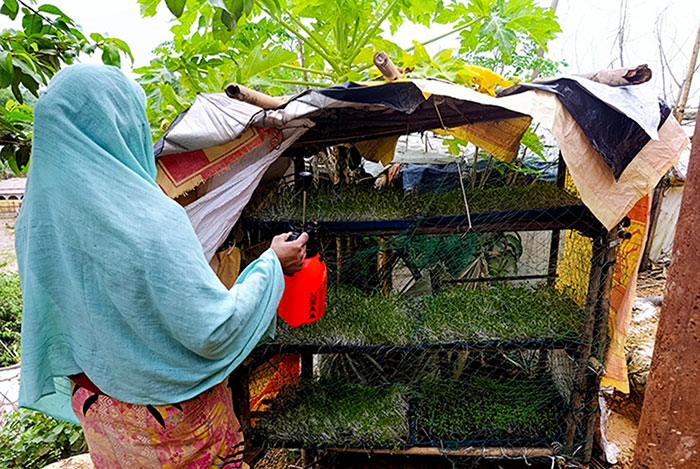
Objectives of the Initiative
The primary objectives of this project are:
- Ensuring Nutritional Security: Microgreens grow quickly and are packed with vitamins, minerals, and antioxidants, playing a vital role in addressing the nutritional deficiencies of the camp’s inhabitants.
- Building Self-Reliance and Dignity: By cultivating their own food, people gain a sense of confidence and dignity in their struggle for survival.
- Creating Livelihood Opportunities: The surplus produce is sold in local markets, opening up alternative income streams for women and youth.
- Promoting Mental Well-being: Engaging in farming provides mental peace, reduces anxiety, and helps build new social connections.
- Developing Sustainable Skills: Participants learn environmentally friendly and resource-efficient farming techniques that lay a sustainable foundation for their future.
A Handful of Green, a Handful of Hope
This initiative proves that it is possible to create opportunities even in the most adverse conditions. The green vegetables grown in these trays are not just a source of nutrition, but a symbol of new hope. This cultivation of courage sends a powerful message about surviving the struggles of life. This small-scale effort demonstrates how a humane endeavor can bring about significant change in people’s lives by utilizing limited resources.
The YPSA-YHCRCCAC project is funded by BMZ and receives technical support from Plan International Bangladesh.
